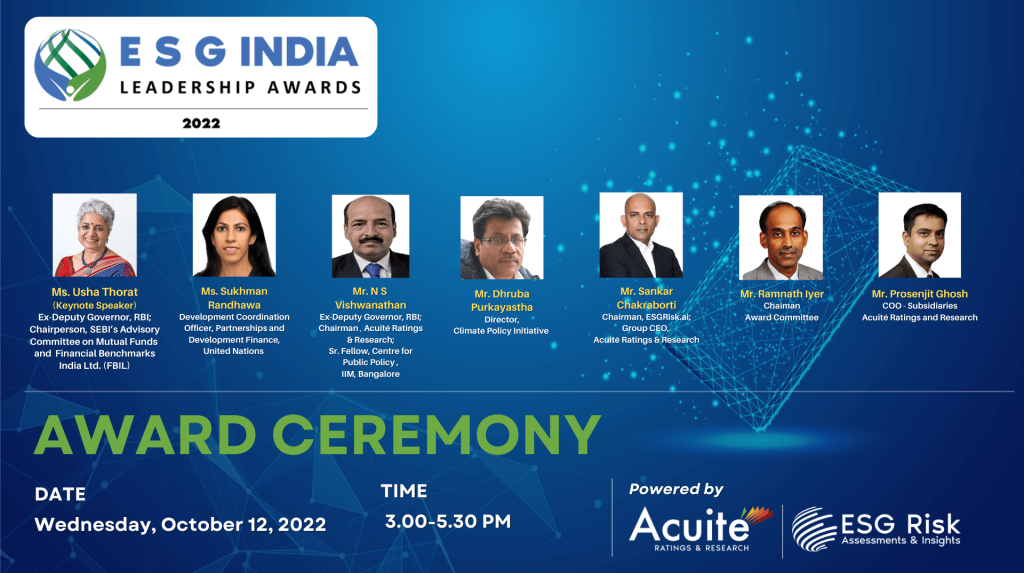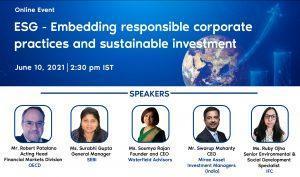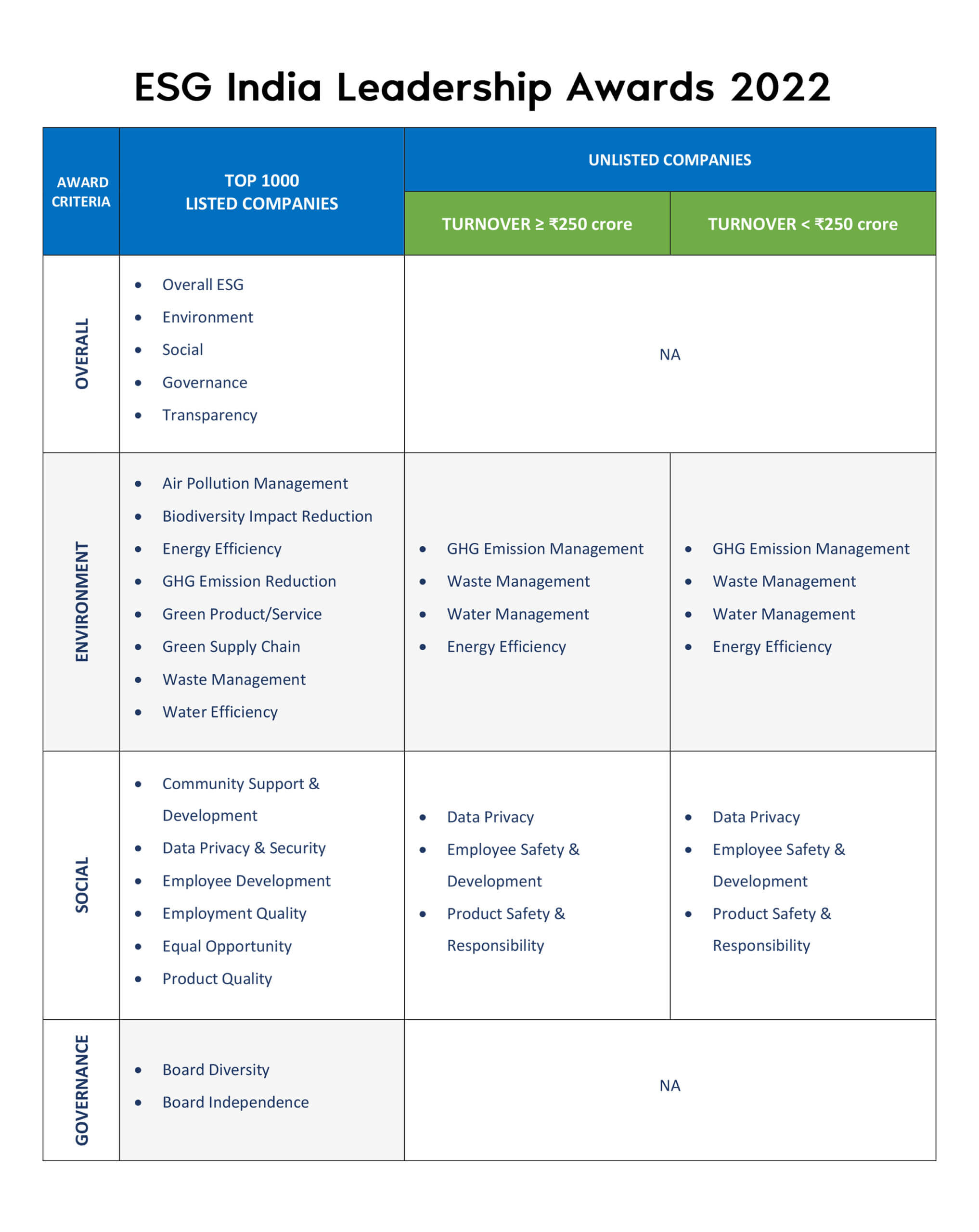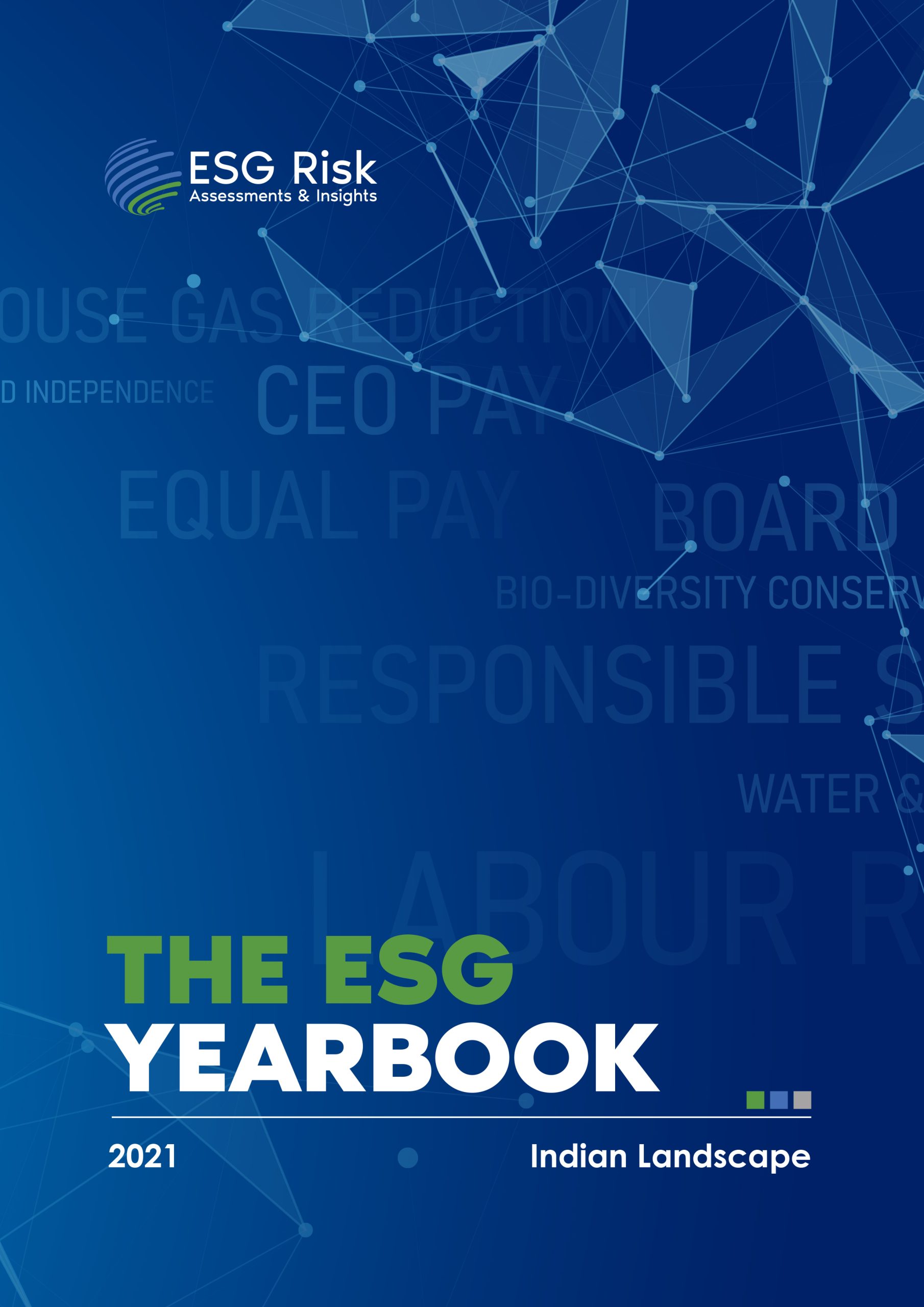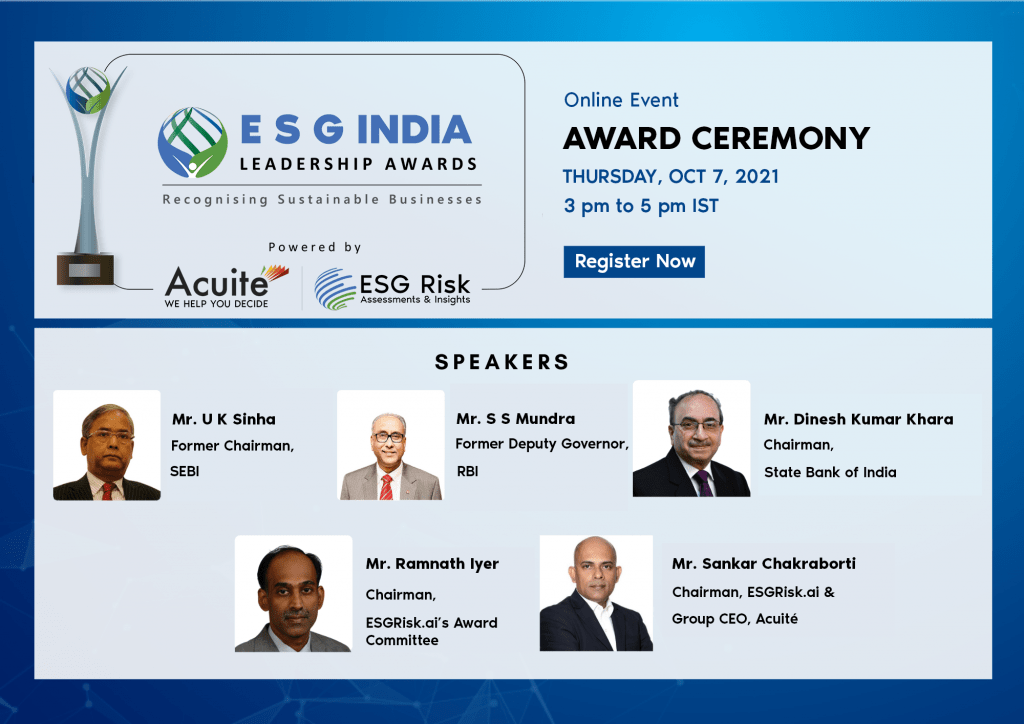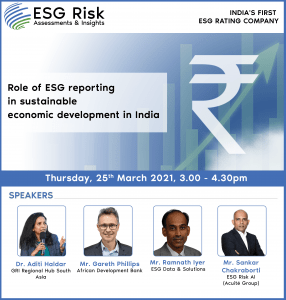Is India ready for ESG Assessments?
 With a total asset under management (AUM) of over $40 trillion invested globally using some form of ESG compliance, India has huge upside potential as a major emerging market. The US, the primary origin point of the world’s capital flows, recorded a 44% growth in ESG compliant AUM. These assets now stand at over $12 trillion (USSIF Report), up from $8.1 trillion in 2016. Canada, the EU, and Japan also boast of high ESG focused investment of roughly 50%, 49%, and 18% (of total AUM), respectively.
With a total asset under management (AUM) of over $40 trillion invested globally using some form of ESG compliance, India has huge upside potential as a major emerging market. The US, the primary origin point of the world’s capital flows, recorded a 44% growth in ESG compliant AUM. These assets now stand at over $12 trillion (USSIF Report), up from $8.1 trillion in 2016. Canada, the EU, and Japan also boast of high ESG focused investment of roughly 50%, 49%, and 18% (of total AUM), respectively.
In India, currently, only 7% of domestic AUM is invested in ESG funds. This is expected to grow to 30% in a decade as per our internal estimates, clearly highlighting the growing significance of the Environmental, Social, and Governance factors in investment decisions. However, investors, lenders, and issuers find it difficult to include ESG leaders in their portfolio citing inadequate ESG disclosures by Indian companies as the reason.
SEBI’s Business Responsibility Reporting (BRR) requirement, notified first in 2012, has increased the extent of disclosures and also standardized the areas of disclosures. Additionally, the enactment of The Companies Act 2013 (Act), requires companies to furnish non-financial information, mandatorily. To evaluate the extent and quality of disclosures ESGrisk.ai, a subsidiary of Acuité Group updated the detailed analysis of IICA on ‘Baseline Assessment of Business & Human Rights Situation in India’. Our study involved sampling the disclosure status, quality, and accuracy of BSE-30 companies. The study was based on the BRR recommended nine principles and revealed that the number of companies providing adequate disclosures is ~75% with 50% of companies providing good quality disclosures and the rest providing disclosures of adequate quality. The pertinent Principles 5, 6, and 7, which are oriented towards protecting human rights, environment, and policy advocacy response respectively, have strong levels of disclosures. This gives us a sense that companies are becoming increasingly responsive to ESG issues and their disclosures resonate with that seriousness. Thus, the question of ESG disclosures is not pertinent. Organisations are increasingly taking the ESG and sustainability related disclosures seriously, thanks to the regulatory push.
Work on other aspects of ESG however remains a work in progress, with things moving in the right direction. The challenge lies in action and assessment of its impact on the environment or society at large.
We know already that India is the world’s third-largest emitter of green-house gases, but what we don’t commonly realize is that India is extremely vulnerable to climate change. India has pledged a 33-35% reduction in the ‘emissions intensity’ of its economy by 2030, compared to 2005 levels. This reduction has to be achieved while we expand village and farm access to energy and maintain and industrialize our economy. A sustainable solution to the problem can only be achieved if 40% of the power generated is based on renewables. Playing its role, the manufacturing sector must not only increase its production efficiency but also innovate around clean technology, reducing its product carbon footprint.
From the social point of view, India continues to face substantial challenges pertaining to inequality and hunger. Surprisingly, this is the case when until recently, the country was the fastest-growing major economy on earth, pulling out millions from the clutches of absolute poverty. Poverty alleviation and equitable access to basic social services including education and healthcare remain at the forefront of national socio-economic discussions. India’s sustainable development will be therefore dependent on not just the country’s ability to maintain economic growth, but also addressing the root causes of its staggering poverty. Unless corporates are incentivized to do their bit by creating employment and serving local communities, the social disparity will only grow – creating further imbalances.
This is precisely where ESG assessments come into play as the world becomes increasingly sensitive towards these issues and embraces the Paris accord under the UNFCCC. ESG assessment tools will play an important role in informing investors about their company’s sensitivities, preparation to cope with disruptive legislations aimed at social development, environment protection, and corporate governance. Assessments will also help companies benchmark their practices across peers, Indian, and global to remain competitive. Finally, as India integrates in the global supply chain, more companies will gain confidence in Indian suppliers, confidently showing their ESG performance, independently assessed and benchmarked. These will thus increase transparency and the quality of disclosures, thereby channelling more funds to the responsible companies.
– Article is written by Sankar Chakraborti, CEO, Acuité Group
